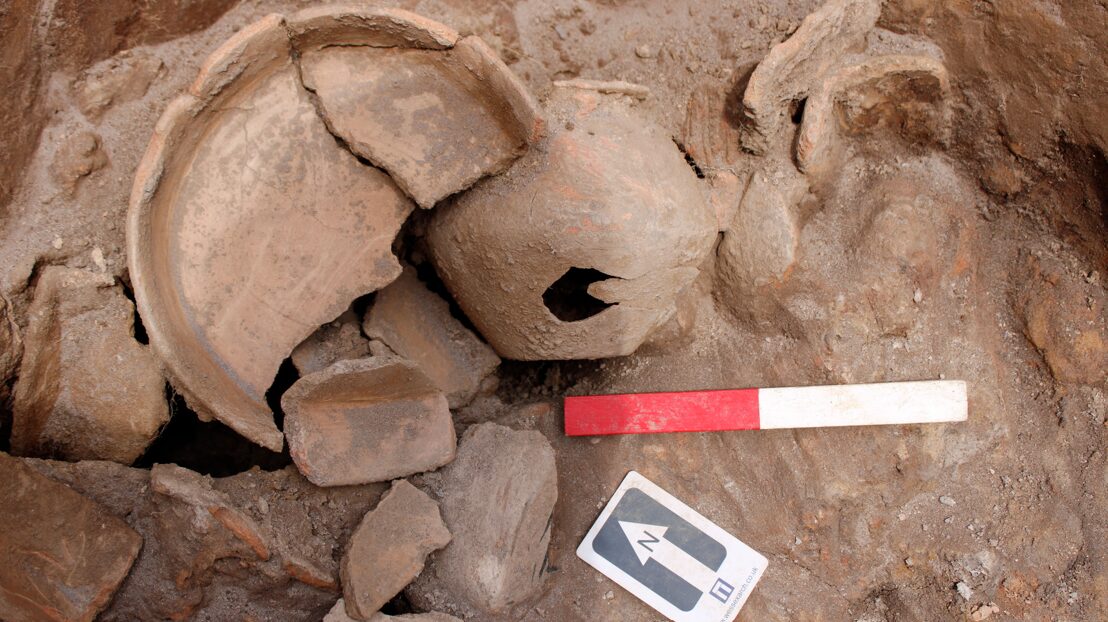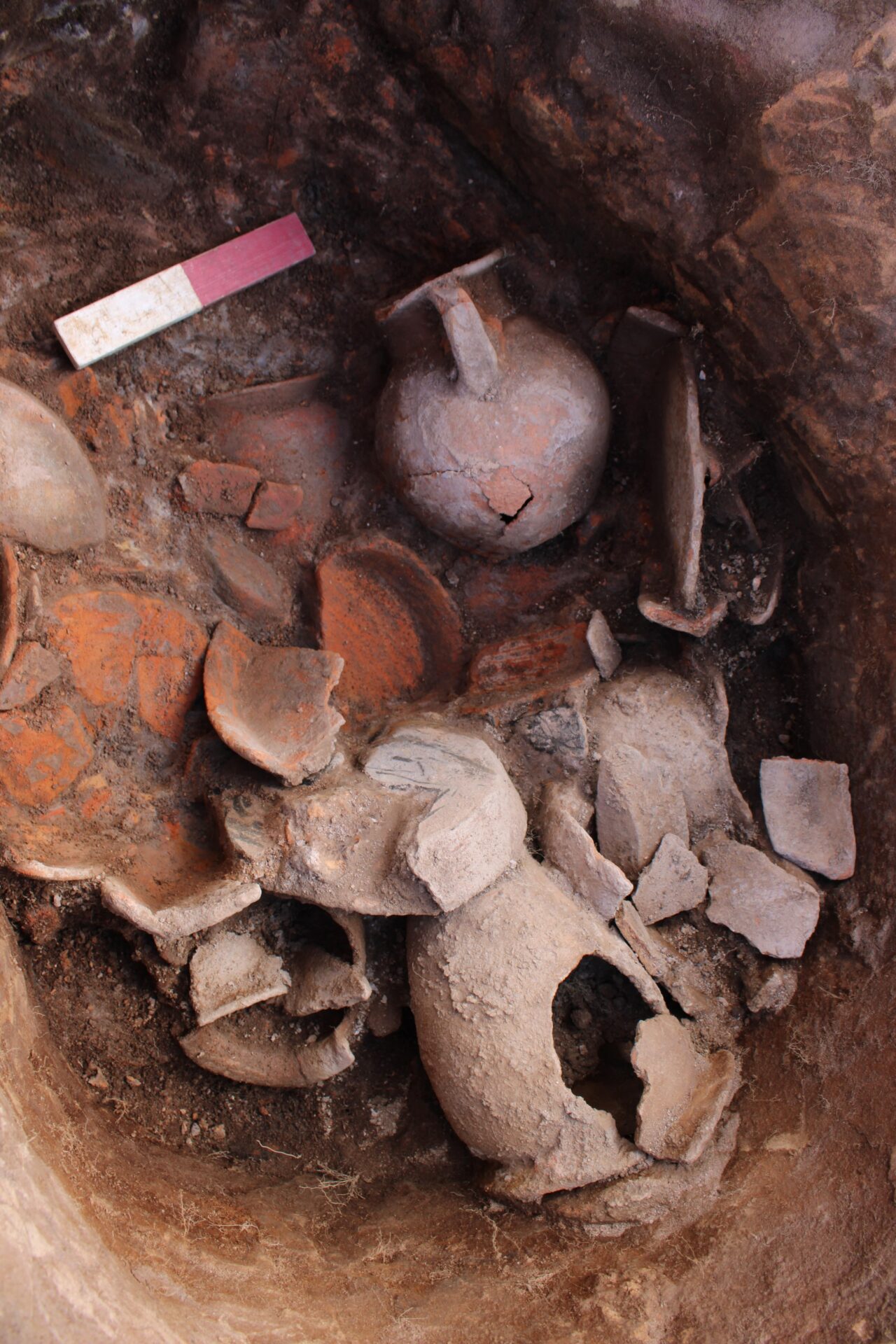
More than 17,000 fragments of ancient pottery, two kilns and the remains of buildings were discovered throughout 2024 at the Arne Moors project in Dorset, where Kier is delivering a compensatory habitat scheme.
All the discoveries relate to the manufacture of a particular type of Roman pottery, called black-burnished ware, characterised by its dark colour.
Several of the pots discovered within the kilns were in an almost-complete state. Many are orange rather than black because the necessary chemical reaction in the clay that would have created the darker colour went wrong during the firing process.
Phil Trim, a fieldwork supervisor from Wessex Archaeology who has been excavating the site, said: “We’re gaining fantastic insight into the inner workings of a Roman pottery production site, operating on a significant scale on The Moors at Arne.

“From the sheer number and variety of the fragments we’ve uncovered and the kilns themselves, we’re able to start understanding the processes and the challenges they might have faced achieving that specific black-burnished ware finish.”
Greg Chuter, the Environment Agency archaeologist leading the programme, added: “This pottery was incredibly popular with the Roman army and eventually made its way into everyday use. We are looking forward to exploring this site’s role in supplying Roman Britain.”
Last year, at the same project, archaeologists also found an “extremely rare” and near-complete prehistoric wooden spade.
Kier is delivering the compensatory habitat scheme project at Arne Moors for the Environment Agency and partners RSPB and Natural England.











